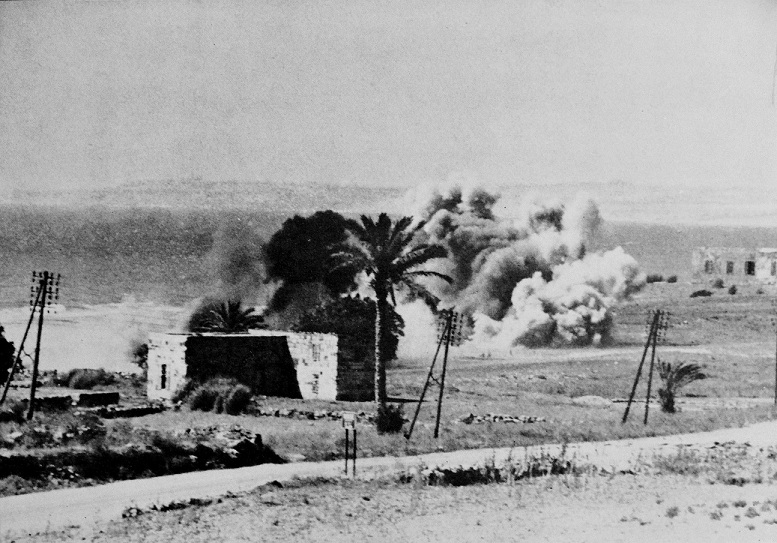It had not been too long since the Lebanese suffered the atrocities of the Great War when the Second World War broke out.
When World War II erupted in 1939, Lebanon had been under French influence for nearly 2 decades, as part of the French Mandate for Syria and Lebanon.
As soon as the news of the fighting reached Lebanon, people began to hoard food and supplies to avoid a repeat of the horrific famine that had wiped out a large portion of the Lebanese population in WWI.
With that, prices soared, accelerated by the monopolists who would store various goods and sell them later at exorbitant prices.
By the time Nazi Germany occupied France in the spring of 1940, inflation in Lebanon had reached dangerous levels, despite the relatively sturdy purchasing power of the Lebanese currency at the time.
With the fall of Paris, Gabriel Puaux, the High Commissioner of the Levant at the time, pledged allegiance to the new government of Vichy France, which was regarded as a German puppet state.
As economic conditions deteriorated further in Lebanon, Lebanese bread became black in color as different new ingredients, such as corn and barley, were being added to its dough in an attempt by bakeries to cope with the shortage of supplies and traditional ingredients.
Lebanon, now under indirect German control, remained in a difficult economic state until the Allies concluded their Levant campaign and entered Beirut in July 1941.

Source: HISTORY OF THE SECOND WORLD WAR. II. London: Her Majesty’s Stationery Office
The Lebanese economy saw a boost under the Allied occupation, as the Allied forces’ large demand for local supplies meant that Lebanese industry, agriculture, trade, and other sectors were actively stimulated and developed.
The end of the campaign also meant the end of the Allies’ siege, which helped the economy recover and flourish, and made food, fuel, and various commodities more abundant for citizens.
After having been limited by the lack of fuel, local transportation also resumed, and the Allies began to construct a railway line through Lebanon to expand their regional supply lines.
















